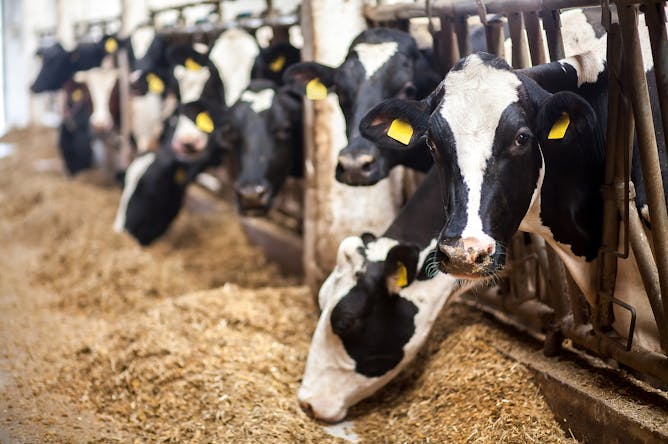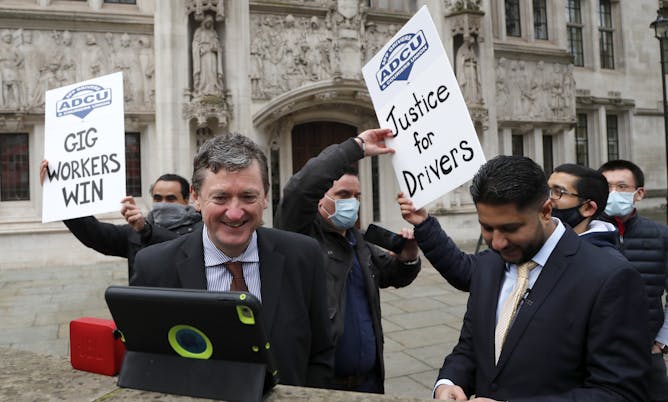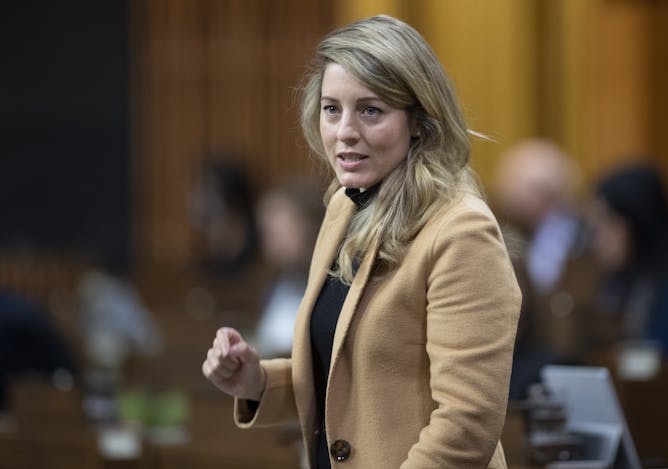|
Recently there has been a flurry of comments and discussions over the supposedly different consistency of butter. Dubbed “Buttergate,” social media posts about butter have grown to such an extent that industry organizations were prompted to respond.
Today, in The Conversation Canada, the University of Guelph’s Stephen LeBlanc writes about the unexpected attention being paid to cows’ feeds. Specifically, he clears up the confusion about the presence of palm supplements in cow feed, noting that “based on the available evidence, it is improbable that feeding palm-based supplements has had appreciable effects on the properties of butter.”
Also today:
Regards,
|

A recent debate over the consistency of butter has led to attention on cows’ feed.
(Shutterstock)
Stephen LeBlanc, University of Guelph
A recent controversy over the consistency of butter reflects the need for evidence rather than anecdotal data.
|

The Fearless Girl statue stands across from the Charging Bull statue in New York’s financial district.
(AP Photo/Bebeto Matthews)
Mayurika Chakravorty, Carleton University
It's clear that when girls and young women are at the forefront of major social justice movements, the old structures of patriarchy and misogyny can be challenged and hopefully dismantled.
|

A cross-Canada survey of university faculty found 68 per cent of females, compared with 32 per cent of males, reported family caregiver challenges in the pandemic.
(Shutterstock)
Jennifer Davis, University of British Columbia
The pandemic has negatively affected female and racialized faculty. Universities need to make sure their career advancement doesn't suffer.
|

Uber drivers of the App Drivers & Couriers Union celebrate as they listen to a British Supreme Court decision that ruled Uber drivers should be classified as workers and not self-employed contractors.
(AP Photo/Frank Augstein)
Anna Triandafyllidou, Ryerson University; Laura Lam, University of Toronto
The British Supreme Court ruling in favour of Uber drivers offers some hope that gig workers, many of them immigrants, might finally be given basic rights. But there's still lots of work to do.
|

La ministre du Développement économique et des Langues officielles, Melanie Joly, lors d'une période de questions à la Chambre des communes, en novembre 2020, à Ottawa. Son nouveau visant à moderniser la Loi sur les langues officielles est la plus importante proposition sur le statut du français et de l'anglais au Canada depuis l'adoption en 1982 de la Charte des droits et libertés.
La Presse Canadienne/Adrian Wyld
François Larocque, L’Université d’Ottawa/University of Ottawa
Le projet de loi reconnait que les deux langues ont besoin d’un traitement différent. Cette approche asymétrique aux langues officielles constitue un changement remarquable dans la politique fédérale.
|

Le vaccin de Johnson & Johnson ne nécessite qu’une seule dose.
Phill Magoke/AFP via Getty Images
Maureen Ferran, Rochester Institute of Technology
Le vaccin de Johnson & Johnson est différent des vaccins de Moderna et de Pfizer sur quelques points importants. Ils pourraient faire une différence notable dans les efforts mondiaux de vaccination.
|
Science + Technology
|
-
Philip Donkersley, Lancaster University
EU-banned pesticides could not only threaten wild bees where they eat, but where they sleep too.
|
|
COVID-19
|
-
Karen Ford, University of Tasmania; Andrea Middleton, University of Tasmania; Steven Campbell, University of Tasmania
What does the coronavirus look like? What kids want to know about the pandemic isn't always what we tell them.
|
|
Environment + Energy
|
-
Monica Bond, University of Zürich
Giraffe numbers have plummeted from an estimated 150,000 in 1985 to fewer than 100,000 today.
|
|